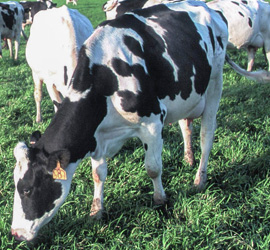WIFSS Raising Awareness of Agroterrorism for Rural Ohio
Chris Brunner, June 18, 2014
 “A farmer, health inspector and FBI agent walk into a county fair pavilion…” It sounds like the beginning of a bad joke but that’s exactly what happened at the county fairgrounds in Ashtabula, in a rural community an hour east of Cleveland Ohio. It was there experts representing law enforcement, fire and emergency medical services, public health and agriculture came together to help coordinate prevention and response to catastrophic food contamination events, including terrorist acts.
“A farmer, health inspector and FBI agent walk into a county fair pavilion…” It sounds like the beginning of a bad joke but that’s exactly what happened at the county fairgrounds in Ashtabula, in a rural community an hour east of Cleveland Ohio. It was there experts representing law enforcement, fire and emergency medical services, public health and agriculture came together to help coordinate prevention and response to catastrophic food contamination events, including terrorist acts.
A mid-western dairy operation is not the picture that comes to mind when thinking of an act of terrorism. However, agriculture represents the largest single sector in the U.S. economy, so agroterrorism is a very real concern for the Department of Homeland Security who sponsors the Rural Domestic Preparedness Consortium (RDPC). Awareness of the dangers and effects of an intentional attack is the first step for frontline responders to properly prepare for such emergencies.
While the pavilion in the fairgrounds was Spartan, the discussion involving professionals from such different disciplines was cutting edge. Food safety case-studies from other states and countries were swapped with stories of local outbreaks. The workshop is one of many offered by the RDPC, a collection of universities and non-profits offering training on such diverse subjects effecting rural communities such as rail car derailments, pipeline explosions and school shootings. The University of California Davis’s Western Institute for Food Safety and Security is one RDPC’s partners, working primarily on food and agricultural issues.
WIFSS instructors for the AWR 152 class on Principles of Preparedness for Agroterrorism and Food System Disasters were, Mike Payne, Dairy Outreach Coordinator, and David Goldenberg, Acting Program Manager and Coordinator for Field Training. AWR 152 is designed to prepare members of emergency response teams to evaluate the overall risk of an intentional attack on a segment of agriculture or a segment of the food system and to provide information about methods to limit vulnerabilities in identified targets.
WIFSS will next be presenting an AWR 151 course in Coarsegold, California, on the Understanding the Dangers of Agroterrorism. This course aids participants in creating an effective response plan.
